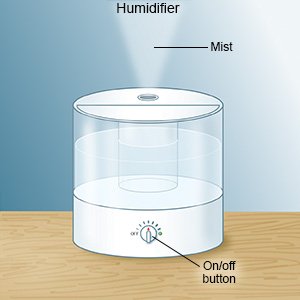Pharyngitis in Children
Medically reviewed by Drugs.com. Last updated on Aug 4, 2025.
AMBULATORY CARE:
Pharyngitis
, or sore throat, is inflammation of the tissues and structures in your child's pharynx (throat). Pharyngitis is often caused by a virus or by bacteria. Common examples include a cold, the flu, mononucleosis (mono), and strep throat.
Signs and symptoms
depend on the cause of your child's pharyngitis. Your child may have any of the following:
- A sore throat or pain with swallowing
- A hoarse or raspy voice
- Cough, runny or stuffy nose, itchy or watery eyes
- A rash
- Fever, headache, or feeling more tired than usual
- Whitish-yellow patches on the back of the throat
- Tender, swollen lumps on the sides of the neck
- Ear pain
- Nausea, vomiting, diarrhea, or stomach pain
Seek care immediately if:
- Your child suddenly has trouble breathing or turns blue.
- Your child has swelling or pain in his or her jaw.
- Your child has voice changes, or it is hard to understand his or her speech.
- Your child has a stiff neck.
- Your child is urinating less than usual or has fewer diapers than usual.
- Your child has increased weakness or tiredness.
- Your child has pain on one side of the throat that is much worse than the other side.
Call your child's doctor if:
- Your child's symptoms return, do not get better, or get worse.
- Your child has a rash or a red, swollen tongue.
- Your child has new ear pain, headaches, or pain around his or her eyes.
- You have questions or concerns about your child's condition or care.
Treatment:
Viral pharyngitis will go away on its own without treatment. Your child's sore throat should start to feel better in 3 to 5 days. Your child may need any of the following:
- Acetaminophen decreases pain and fever. It is available without a doctor's order. Ask how much to give your child and how often to give it. Follow directions. Read the labels of all other medicines your child uses to see if they also contain acetaminophen, or ask your child's doctor or pharmacist. Acetaminophen can cause liver damage if not taken correctly.
- NSAIDs , such as ibuprofen, help decrease swelling, pain, and fever. This medicine is available with or without a doctor's order. NSAIDs can cause stomach bleeding or kidney problems in certain people. If your child takes blood thinner medicine, always ask if NSAIDs are safe for him or her. Always read the medicine label and follow directions. Do not give these medicines to children younger than 6 months without direction from a healthcare provider.
- Antibiotics treat a bacterial infection.
- Do not give aspirin to children younger than 18 years. Your child could develop Reye syndrome if he or she has the flu or a fever and takes aspirin. Reye syndrome can cause life-threatening brain and liver damage. Check your child's medicine labels for aspirin or salicylates.
Manage your child's symptoms:
- Have your child rest. Rest will help your child get better.
- Give your child more liquids as directed. Liquids will help prevent dehydration. Liquids that help prevent dehydration include water, fruit juice, and broth. Do not give your child liquids that contain caffeine. Caffeine can increase your child's risk for dehydration. Ask your child's healthcare provider how much liquid to give your child each day.
- Soothe your child's throat. If your child can gargle, give him or her ¼ of a teaspoon of salt mixed with 1 cup of warm water to gargle. If your child is 12 years or older, give him or her throat lozenges to help decrease throat pain.
- Use a cool mist humidifier. This will add moisture to the air and make it easier for your child to breathe. This may also help decrease your child's cough.

Prevent the spread of germs:
Wash your hands and your child's hands often. Keep your child away from other people while he or she is still contagious. Ask your child's healthcare provider how long your child is contagious. Do not let your child share food or drinks. Do not let your child share toys or pacifiers. Wash these items with soap and hot water.
 |
When to return to school or daycare:
Ask your child's provider when it is okay for your child to return to school or daycare. Your child may be able to return when his or her symptoms go away.
Follow up with your child's doctor as directed:
Write down your questions so you remember to ask them during your child's visits.
© Copyright Merative 2025 Information is for End User's use only and may not be sold, redistributed or otherwise used for commercial purposes.
The above information is an educational aid only. It is not intended as medical advice for individual conditions or treatments. Talk to your doctor, nurse or pharmacist before following any medical regimen to see if it is safe and effective for you.
Learn more about Pharyngitis
Treatment options
Care guides
Further information
Always consult your healthcare provider to ensure the information displayed on this page applies to your personal circumstances.
